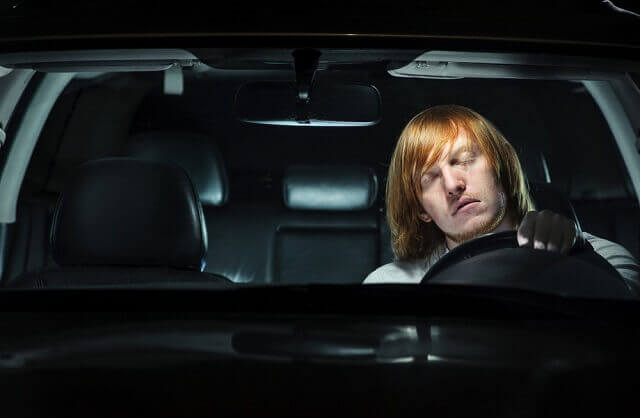According to the latest poll from the National Sleep Foundation (NSF), more than two-thirds of all Americans get less than seven hours of sleep per night during the week. Lack of sleep can severely impair a person’s ability to process information and react to stimuli in their environment – and both of these factors can directly correlate to an increased risk of causing motor vehicle accidents for commuters, commercial truck drivers, and motorcyclists.
How Do You Know if You are Too Tired to Drive?
So, how can a person tell if he or she is too tired to drive? According to the NSF:
“Definitions of drowsy driving or driver fatigue rely on how the concept of ‘fatigue’ is defined. Fatigue is a general term commonly used to describe the experience of being ‘sleepy,’ ‘tired,’ ‘drowsy,’ or ‘exhausted.’ While all of these terms have different meanings in research and clinical settings, they tend to be used interchangeably in the traffic safety and transportation fields.”
Too little sleep, interrupted sleep, sleeping in short bouts, accumulating a lack of sleep over time, overexertion, undiagnosed sleep disorders, and drug and alcohol use can all lead to general drowsiness or fatigue. Signs that you may not be getting enough sleep include:
- Difficulty focusing
- Eyelids feeling “heavy”
- Feeling a constant need to rub your eyes
- Frequent blinking
- Irritability
- Nodding off
- Restlessness
- Yawning
Additionally, if you are driving and experience any of the following, the NSF advises that you should find a safe place to pull over and rest as soon as possible.
- Drifting from your lane (including drifting onto the shoulder)
- Following too closely (tailgating)
- Inability to remember the last few miles of driving
- Missing exits or traffic signs
Read more: The dangers of driving fatigued
What Can You Do if You are Constantly Feeling Drowsy?
If you or a loved one constantly seems to be drowsy, there are steps you can take to get a better night’s sleep. Sleep is important for your overall health and your safety on the road, and any concerns sleep deprivation should be addressed sooner rather than later. Some of the options that are available include:
- Establishing (and sticking to) a normal sleeping schedule
- Limiting your alcohol consumption (or avoiding alcohol) before bed, and seeking treatment for alcohol dependence if necessary
- Putting away your before bed and ensuring that your bedroom is dark, quiet and a comfortable temperature
- Seeking help from a medical professional who specializes in sleep patterns, particularly if you are concerned that you may have an undiagnosed sleep disorder
According to the NSF, 60% of Americans have driven while feeling drowsy and 37% have fallen asleep while driving within the past year. Do not let a lack of sleep put yourself and others at risk. Car accidents can have devastating consequences and can even lead to death. There are enough dangers out there already without drivers being drowsy or asleep behind the wheel.
Read more: Fatigue as the main cause for truck accidents
Brian D. Guralnick Injury Lawyers | Car Accident Attorneys in Palm Beach County
At Brian D. Guralnick Injury Lawyers, we provide experienced legal representation for victims of car accidents in Palm Beach County. If you were injured in an accident and suspect that drowsy driving may have been to blame, you can call me, Brian D. Guralnick, personally at 561-202-6673 for a free consultation.
Were you or a loved one injured in an accident?
The law offices of Brian D. Guralnick help Florida residents and tourists seek compensation and Demand More? for their injuries.
Disclaimer: The information in this blog is not intended, and must not be taken, as legal advice on any particular set of facts or circumstances. If you need advice on specific legal issues, please consult with a licensed Personal Injury attorney.

